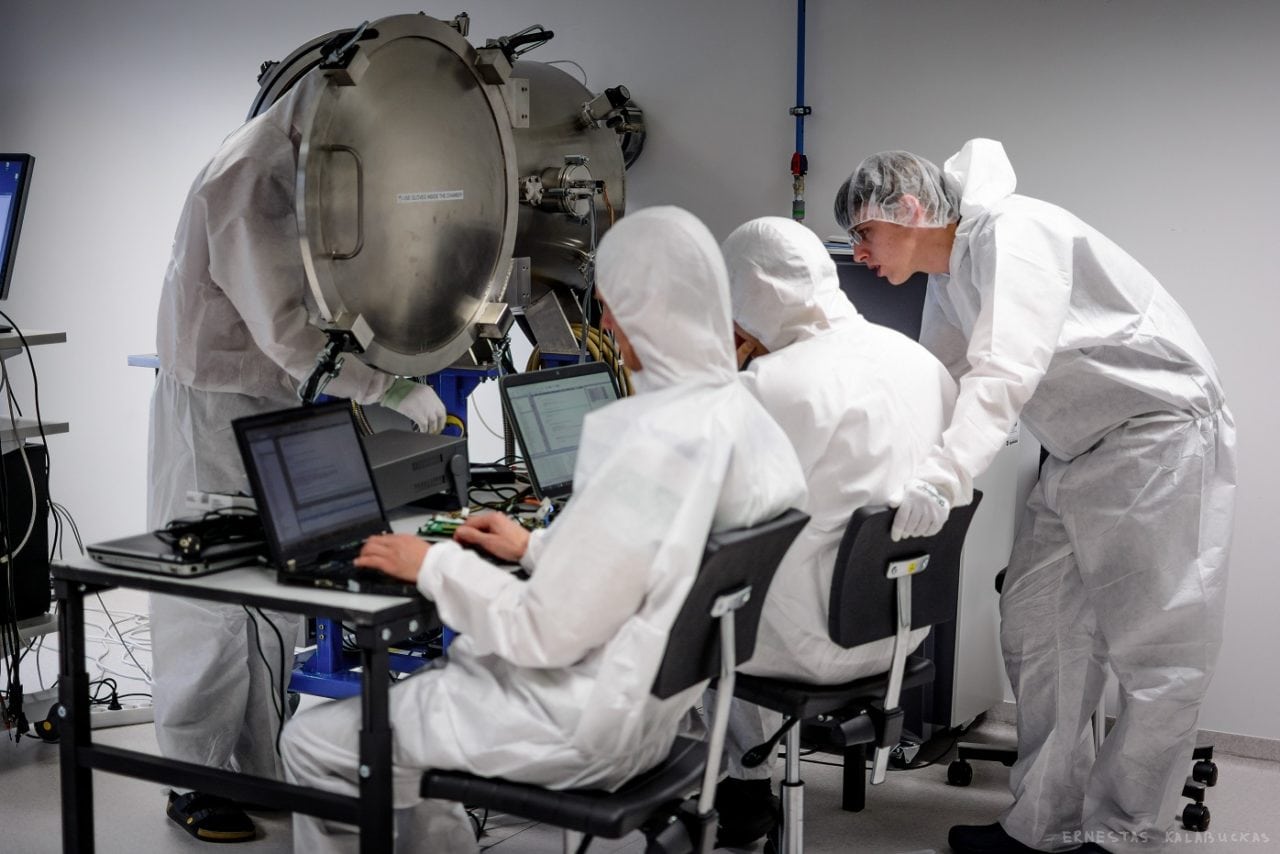
A NanoAvionics team performing flight readiness tests. Photo courtesy of NanoAvionics
NanoAvionics has signed a contract with Lacuna Space to support its in-orbit demonstration of an internet of things (IoT) communications network. NanoAvionics’ M6P satellite platform and mission integration services will allow Lacuna Space to begin testing its technology in the third quarter of this year, paving the way for deployment of the full Lacuna Network, a 32-satellite constellation, from 2019.
Lacuna Space developed its IoT communications system based on Semtech’s LoRa devices and wireless radio frequency technology, and the LoRaWAN open protocol, in partnership with Parametric. Low-power sensors and trackers will transmit short bursts of data to the passing satellites of the Lacuna Network. The satellite constellation’s global coverage will allow ubiquitous IoT communications even in remote locations.
Under the terms of the contract, NanoAvionics will provide radio-frequency allocation, satellite registration, launch integration and other services. In addition, NanoAvionics will integrate Lacuna Space’s communications payload into the M6P nano-satellite platform.
The M6P platform is a preconfigured nano-satellite designed to support the requirements of diverse missions including IoT, Earth observation and other commercial applications. The M6P’s green propulsion system enables missions that previously required much larger and more expensive satellite designs. Orbit maintenance maneuvers, for example, extend the M6P’s time in orbit and lowers the cost of maintaining satellite constellations.
This was originally published at Via Satellite.